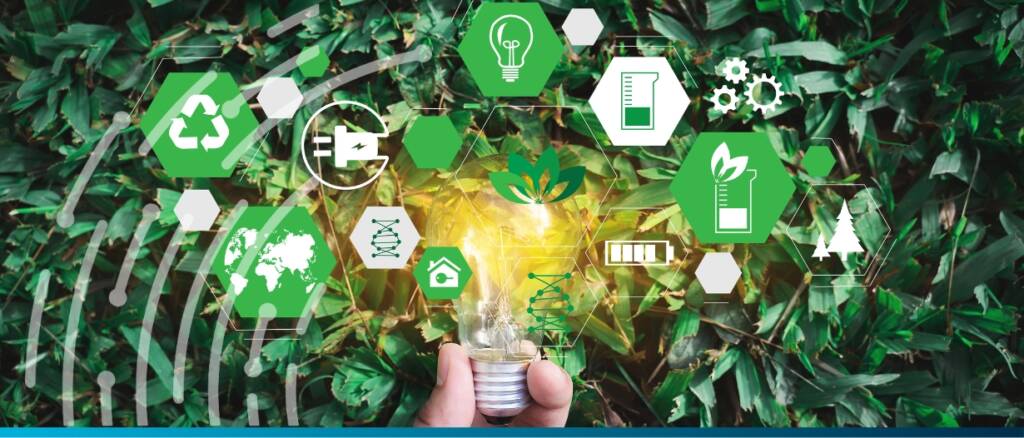Estimated reading time: 6 minutes
News on the invasion of Ukraine, inflation and recession have swept into all offices, living rooms and public spaces in the past year. In other words: Macroeconomic considerations have prevailed, and we have all had to adapt to a new reality – not least in my work with sustainable finance.
For some, sustainability has fallen down the agenda in light of these events. But I do believe that these worldwide economic events are an eye-opener to most people.
The recent events have proven that we need to work hard to enjoy the ease of supply that was enjoyed in the prior decades. Furthermore, it’s becoming increasingly clear to many that we need to act with thoughtful deliberation if we aim to achieve a more sustainable future, one that garners greater support from both corporations and individuals.
Sustainable finance is in a leading position to help companies and industries make this transition. Financial institutions (FIs) can use their position to help others create value, and explain how sustainable investments can be profitable strategies.
I am convinced that this transition isn’t something that businesses and industries can stir away from. Over the coming decades, climate change will remain the greatest challenge for society, posing risks to lives and livelihoods, business models, financial assets and our very way of life.

Financial sector can shape norms
The financial sector has a tremendous influence on the way companies do business.
Governments alone cannot finance the scale of transition needed to meet the targets of the Paris Agreement, it takes a holistic approach to accomplish meaningful change
For example, Danske Bank can influence carbon emissions equivalent to the whole country of Denmark through its lending and investments. Danske Bank calculated that 99.9% of its carbon footprint comes from the emissions of its 3 million customers and the companies it invests in.
The financial sector thus has a significant chance, as well as a responsibility, to contribute actively to creating more sustainable societies. This can be achieved if these institutions deliberately incorporate the risks and benefits associated with sustainability into their everyday operations.
It is our job as an FI to make this clear for our customers, even though this might be pushing the boundaries for some. However, I am also a firm believer that banks should use the stick instead of the carrot. In practical terms, this implies that we should continue encouraging our customers towards greener practices, but we should only consider parting ways if there is an evident lack of willingness on their part to adapt to more sustainable changes.
At Danske Bank, we released a climate action plan in 2023, which revealed how much work we still have in reducing our climate footprint.
The transition from fossil to renewable energy is a long-term effort that requires massive investments. We serve the entire economy, not just the businesses that are already very green today. We make the greatest impact for the individual and for society by owning our role in society, and by offering our customers advisory services and financial solutions to support their transition.

A roadmap to sustainability: Important, but unclear
Where do we start? Collaboration is key, we cannot tackle a problem this large is we go at it alone.. If a business does not want to transition or does not have a realistic transition plan, FIs may need to rethink their partnership. Businesses that are reluctant to initiate a transition plan can present a high level of risk to their partners.
Societies are still very much dependent on fossil fuels and according to the IEA, oil and gas will play a substantial role in everyday life until 2050. However, it is important to begin the transition away from fossil fuels, and secure commitments to sustainable business operations. This is where FIs can play a role in influencing business decisions and moving society towards a green future.
Does this mean we should ignore the current widespread use of fossil fuels? Absolutely not. It’s vital for us that the companies we finance are on a reliable and ambitious path, shifting from fossil fuels to sustainable energy production. If this transition is too slow or misguided, we will eventually withdraw our support.
Engaging and suporting
However, it’s important that we engage with these companies, guiding them towards sustainable change. To validate our stance and take responsibility for our actions, we have developed a climate action plan that aligns with the Science Based Targets initiative (SBTi). This ensures our policies and actions are in line with the scientific demands needed to fulfil the Paris Agreement commitments.
This commitment means that regardless of the type of customer, whether it be a loan to make their house more energy-efficient, an SME looking for new sustainable products, or a large institution attempting to reconfigure their business model, they can access a sustainable financing plan.
Danske Bank’s climate action plan outlines how it will support the transition to a sustainable future, ensuring that customers will reduce their emissions in line with the goals of the Paris Agreement. That can range from individuals who want to improve energy efficiency in their homes all the way to fossil fuel companies that want to move to more sustainable alternatives.

Many businesses have already set their own ambitious sustainability targets and welcome additional support. Going forward, Danske will increase training advisors to address sustainability issues in conversations with customers – whose issues could be carbon emissions, re-using and circularity, biodiversity, or social safeguarding – and offer relevant financial products.
With our climate action plan, we also accept the fact that banks also possess a responsibility for the climate crisis. Implementing this plan is the first step in creating an industry-wide movement, where we all understand that we play a pivotal role in shaping a greener future.
Consider the impact if we were able to create an exemplary model for funding sustainable business practices for our clients and then expand it. Not only would this have a significant positive effect on society, but it would also provide a substantial competitive edge for businesses in the Nordic region.
































